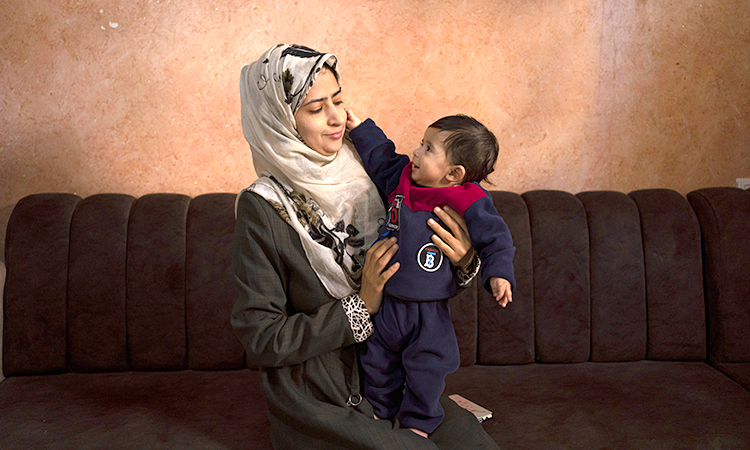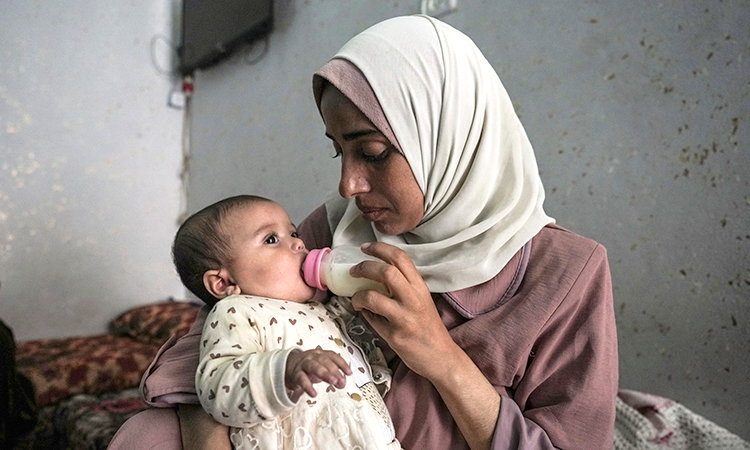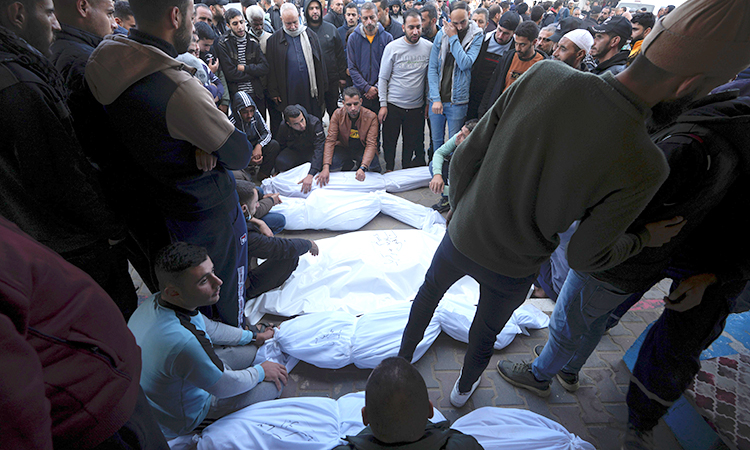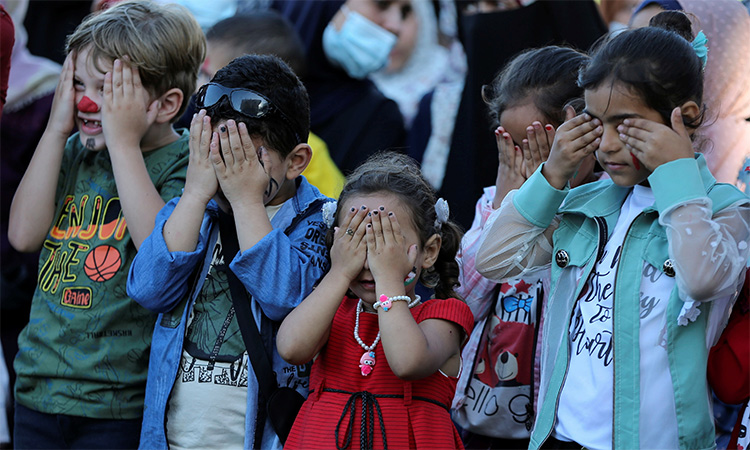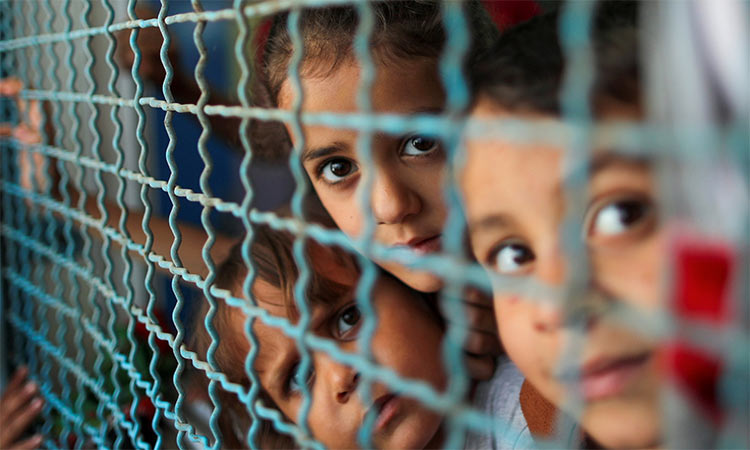Babies born in Gaza on or after Oct.7 have known only war
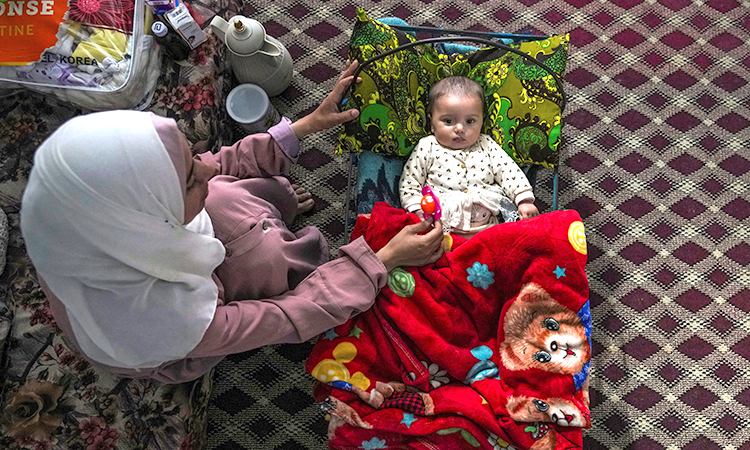
Rola Saqer sits beside her baby Masa Mohammad Zaqout at her parents’ home in the neighborhood of Zawaida. AP
Rola Saqer’s water broke that day as she sheltered from Israeli airstrikes in Beit Lahia, a Gaza town near where Hamas militants streamed across the border hours earlier in the attack that kicked off the war. She and her husband, Mohammed Zaqout, had been trying to have a child for five years, and not even the terrifying explosions all around would stop them from going to the hospital to have their baby that night. Saqer gave birth to Masa, a name that means diamond in Arabic.
The families emerged from the hospitals to a changed world. On the babies' second day of life, Israel declared war on Hamas and its fighter jets swooped over the neighborhoods where Ali and Masa were supposed to grow up. In the six months since the children were born, the couples have experienced the trials of early parenthood against the backdrop of a brutal conflict.
The families' homes were leveled by airstrikes, and they've had no reliable shelter and scant access to medical treatment and baby supplies. The infants are hungry, and despite all of the plans the couples made before the war, they fear the lives they had hoped to give their children is gone.
"I was preparing him for another life, a beautiful one, but war changed all of these features,” Amal Al-Taweel told The Associated Press on Wednesday. "We barely live day by day, and we don't know what will happen. There is no planning."
Amal Al-Taweel plays with her baby Ali at her family home in Nuseirat, central Gaza Strip, April 5, 2024. AP
Saqer recalled the hope she had before the war.
"This is my only daughter," she said, rocking Masa gently in a cradle. "I prepared many things and clothes for her. I bought her a closet a week before the war. I was also planning her birthdays and everything. The war came and destroyed everything.”
The Al-Taweel family spent the first days of Ali's life going between their home and relatives' houses in search of safety. Nearby buildings kept being struck - first one next to Amal's sister's home, and then one next to her parents' place.
As the family sheltered at home on Oct. 20, Israeli authorities issued an evacuation order warning that a strike was imminent and residents had 10 minutes to leave.
"I had to evacuate. I couldn’t take anything; no IDs, no university certificates, no clothes for my child - nothing,” Amal Al-Taweel said. "Even milk, diapers, and toys that I bought for my child.”
The family found temporary refuge at Amal's parents' house in central Gaza, where 15 family members took shelter.
Rola Saqer feeds her baby Masa Mohammad Zaqout at her parents’ home in the central Gaza, on April 4, 2024. AP
Not far away, Saqer, her husband and daughter crammed into a relative’s two-bedroom house where more than 80 members of her extended family were staying. It became so crowded, she said, that her male relatives built a tent outside so that the women and children could sleep more comfortably indoors.
As Israeli ground troops advanced on central Gaza in December, both young families headed Gaza’s southernmost city, Rafah, which is now home to hundreds of thousands of displaced Palestinians.
Like many who have sought refuge in overcrowded Rafah, the Al-Taweel family lived in a tent, where they stayed for over a month.
"It was the worst experience of my life; the worst conditions I have ever lived in,” Amal Al-Taweel said.
Israel has severely restricted aid deliveries of food, water, medicine and other supplies into Gaza during the war, which began with Hamas' Oct. 7 attack on southern Israel in which militants killed about 1,200 people and took roughly 250 hostages.
Israel has exacted a terrible toll: More than 33,000 Palestinians have been killed, around two-thirds of them women and children, according to Palestinian health officials whose death count doesn’t distinguish between civilians and fighters. Israel's offensive has pushed Gaza into a humanitarian crisis, displacing over 80% of the population and leaving more than 1 million people on the brink of starvation.
Associated Press